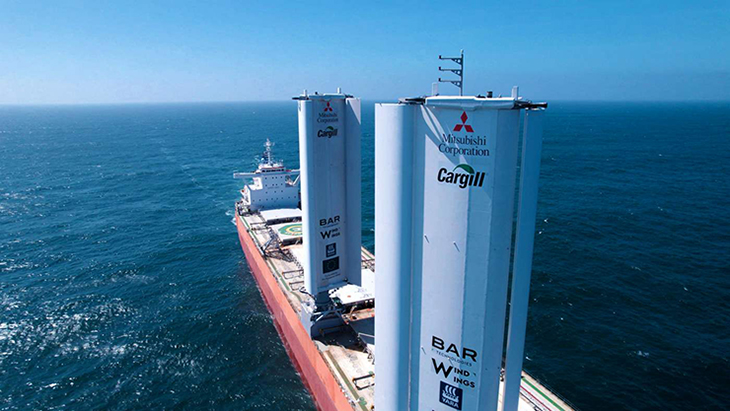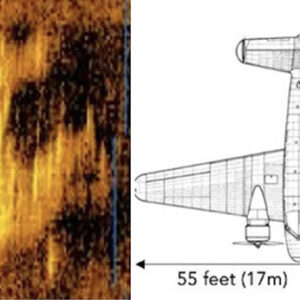
The merchant shipping industry is experiencing a remarkable maritime revival in a very unexpected way. While merchant ships, which relied on billowing sails during their early years became incredibly efficient due to internal combustion engines. However these days, these once abandoned sails are making an amazing comeback.
The catalyst for this revival is not the traditional sail you might imagine though, but a cutting-edge innovation that is being called WindWings. These colossal wing sails, towering approximately 100 feet (37 meters) in height, are a beacon of sustainability and can be seamlessly integrated onto the decks of commercial vessels, heralding a new era of eco-conscious shipping.
The inaugural deployment of WindWings is a vessel named Pyxis Ocean, which is chartered by none other than US global food corporation, Cargill. This vessel marks the industry’s first successful retrofitting with two WindWings, a feat that holds great promise for the future of maritime transportation.
These pioneering WindWings is the brainchild of Yara Marine Technologies, an industrialization partner dedicated to advancing sustainable solutions in the maritime sector. The immediate impact of this innovation is an expected average fuel savings of up to 30% for newly constructed vessels, with the potential for ever greater efficiencies when combined with alternative fuels.
Jan Dieleman, President of Cargill’s Ocean Transportation business, said in a statement, “At Cargill, we have a responsibility to pioneer decarbonizing solutions across all our supply chains to meet our customer’s needs and the needs of the planet.”
“A technology like WindWings doesn’t come without risk, and as an industry leader—in partnership with visionary shipowner Mitsubishi Corporation—we are not afraid to invest, take those risks, and be transparent with our learnings to help our partners in maritime [sic] transition to a more sustainable future,” he added.
Pyxis Ocean, now gracefully plying the world’s oceans, embarked on her maiden voyage with the newly installed WindWings, an accomplishment that signifies a major step forward in the integration of this groundbreaking technology. The WindWings project has received substantial backing from the European Union, affirming its status as a transformative retrofit solution capable of semi-decarbonizing existing vessels. This is a significant development, as over half of the world’s merchant shipping fleet consists of vessels that are over nine years old, making extensive retrofitting imperative in the drive towards sustainability.
The International Maritime Organization (IMO), cognizant of the pressing need to combat climate change, has set forth ambitious goals to reduce carbon emissions resulting from the use of diesel fuel in maritime transportation. The IMO’s vision entails a 70% reduction in CO2 and equivalents by 2050 when compared to a 2008 baseline. WindWings, with their potential to optimize the fuel efficiency of vessels, holds the key to unlocking these sustainable aspirations.
In the coming months, the performance of WindWings will undergo meticulous scrutiny to enhance its design, operation, and overall efficacy. This focused effort is guided by the shared objective of ensuring that the Pyxis Ocean will serve as a valuable prototype, offering insights that can be adopted not only across Cargill’s expansive fleet but throughout the entire maritime industry. It is through such collective efforts that the world of shipping can make significant strides towards a greener and more sustainable future.
As disclosed in a Cargill release, WindWings on an average global shipping route have the potential to save an impressive 1.5 tons of fuel per WindWing per day. the savings are even more promising on trans-oceanic voyages. This translates into a remarkable reduction in the environmental footprint of maritime trade and highlights the pivotal role WindWings could play in helping the industry meet its environmental commitments.
See more about this noteworthy project in the video below:
What are your thoughts? Please comment below and share this news!
True Activist / Report a typo


